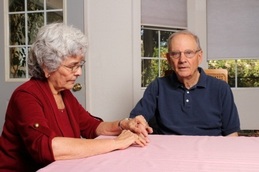Memory loss can start as early as thirties, with average age of 57, new research finds

Memory loss begins at 57 but for some people may start as early thirties and forties according to new research published today.
People over 50 are plagued by the fear of memory loss and forget everyday words like 'apple' and the names of close friends, the survey commissioned by Adult learning website Love to Learn discovered, as its latest online memory training course goes live.
Other common lapses in memory included:
• leaving the house without putting on socks
• forgetting how to spell common words like 'hour'
• and even struggling to remember their own name when introducing themselves at a business meeting.
Gill Jackson, director of Love to Learn, said: “Memory changes throughout your lifetime and your brain has a remarkable ability to adapt and thrive.
Many of the assumptions we make about the older brain are untrue. Our memory works wonders, most of the time. But it could be doing even more – and this course shows you how to use specific techniques to help train your memory to be even more effective.”
The research also revealed that the average age of the onset of problems with everyday memory and forgetfulness is just 57.
For some it starts even earlier, with one in ten people, (11 per cent) noticing their memory suffering in their forties and for six per cent it started declining in their thirties.
Half of the population over 50 admitted they have been embarrassed about forgetting simple things. One in three people, (37 per cent) had forgotten names, followed by household items such as keys and glasses (19 per cent) and PIN numbers (13 per cent).
More serious examples of memory loss included forgetting important hospital appointments and even leaving loved ones behind in shops.
There were also some light hearted responses including:
• forgetting it was their own birthday until 24 hours later,
• forgetting their own name when introducing themselves at a social gathering,
• forgetting a friend’s name who they had known for 25 years,
• and not remembering to switch on the oven to roast potatoes for the family’s Christmas Day meal.
The research also revealed that 31 per cent of people are concerned about losing their memory now with a further 31 per cent concerned it could become a problem in the future.
Love to Learn has teamed up with former World Memory Champion Jonathan Hancock who is the course’s online tutor.
He broke the first of his two Guinness World Records while he was still at school, and used his memory skills to gain A grades in all his exams and a First from Oxford University.
He said: “Brilliant memory is something you do, not something you own. The brain is a muscle and changes according to how you exercise it and what you practise. Everyone can train their memory, and can surprise themselves with how much they can improve it.”
For more information on Love to Learn, visit www.lovetolearn.co.uk
Latest News
 29-Jul-24
Dementia Bus gives carehome.co.uk staff insight into life with dementia
29-Jul-24
Dementia Bus gives carehome.co.uk staff insight into life with dementia
 01-Mar-24
Find out the top care homes in 2024
01-Mar-24
Find out the top care homes in 2024
 21-Mar-23
UK's top care homes in 2023 revealed
21-Mar-23
UK's top care homes in 2023 revealed
 03-Jan-23
carehome.co.uk launches free care helpline
03-Jan-23
carehome.co.uk launches free care helpline
 13-Dec-22
5 mins with Emily Whitehurst, chief operating officer for Constantia Healthcare
13-Dec-22
5 mins with Emily Whitehurst, chief operating officer for Constantia Healthcare